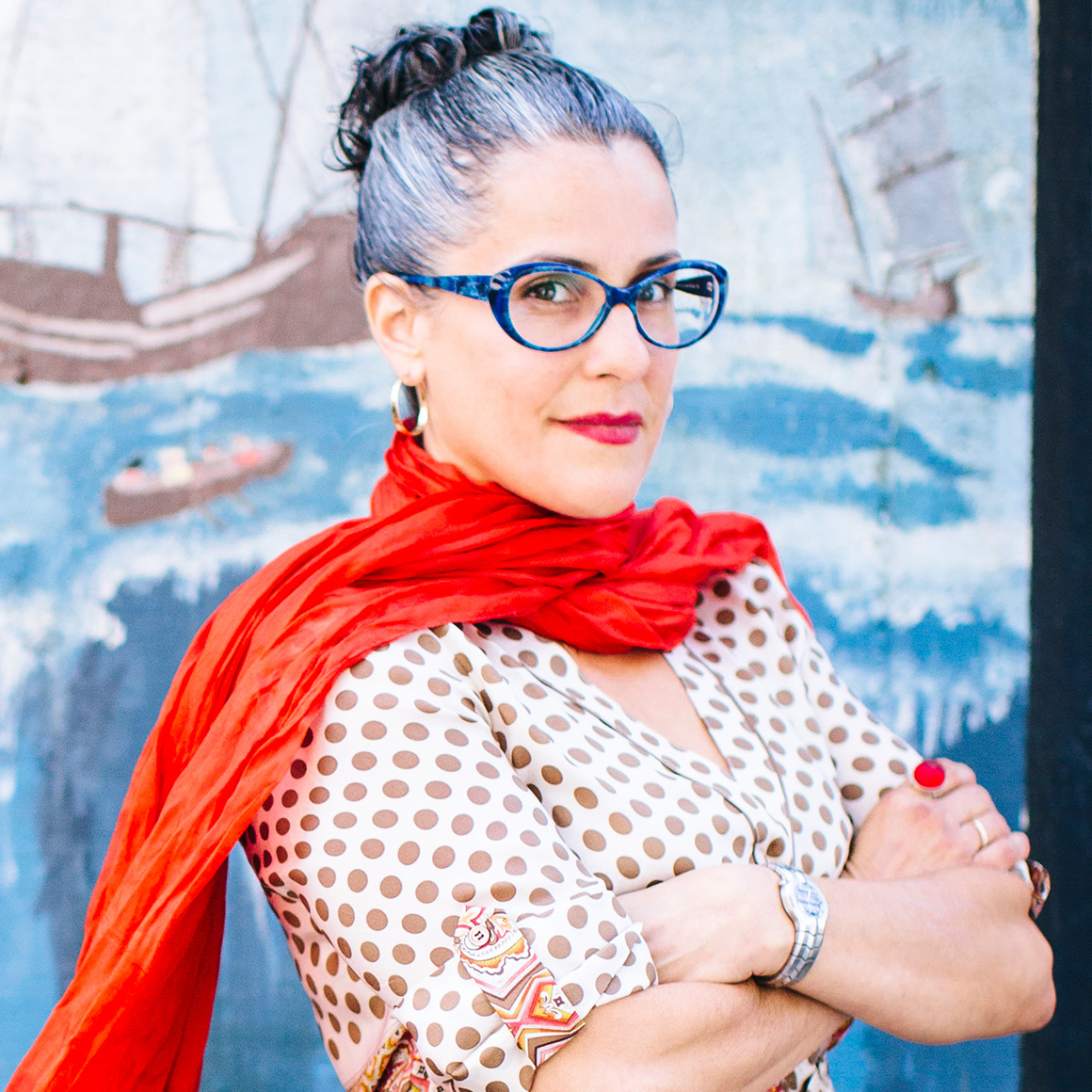
“College isn’t a terminus. Rather, it’s one step in what for many is a long journey of learning and growing.”
Catherine S. Ramírez
My backstory
I was born and raised in Los Angeles. My father grew up in Los Angeles and was drafted into World War II immediately after graduating from high school. After being discharged, he took a job with Caltrans and literally built some of Southern California’s busiest freeways.
My mother, the eldest of four siblings, dropped out of high school to care for the family after her mother died. She made many of my and my three sisters’ clothes, including our Halloween costumes, prom dresses and bathing suits. In 1992, the Los Angeles Times honored her as a Great Home Cook. When I was a teenager, my mother went back to school, earning her GED the same year I graduated from high school.
In addition to showing me the power of determination and resilience, she taught me to value education and to take pride in my work, whether I’m applying for a grant, writing a lecture or making a sandwich.
What motivated me to go to college
When I was around 15 years old, I got on a Greyhound bus and visited my sister, who had transferred to UC Berkeley from community college. I was blown away by the vibrancy of the campus. I resolved to study hard and attend Cal, too.
What I would tell my freshman self
College isn’t a terminus. Rather, it’s one step in what for many is a long journey of learning and growing. Many of my students work very hard to get into college. I remind them that they should continue to work hard, especially if they think they might want to pursue a graduate or professional degree.
The university is a multifaceted and temporary resource. Take advantage of as many of our campus’ institutions, programs and services as you can, from the Career Center, to the Education Abroad Program, to the gym. The university is also a crossroads. It connects people who don’t always come from the same places, who don’t have the same advantages and struggles, and who don’t always see eye-to-eye. Listen to your classmates, roommates and teachers, even and especially when you disagree with them. Lastly, take advantage of office hours and get to know your instructors, ideally before your last year or last quarter.
How my background helped me
I’m living proof that there’s sometimes little to no correlation between standardized test scores and academic success. When I informed my high school counselor that I intended to apply to UC Berkeley, she told me not to bother because I probably wouldn’t get in based on my relatively low SAT scores. When I enrolled at Cal, an academic adviser told me that I was more likely to drop out than graduate based on those same scores. I treated what both of those individuals told me as a challenge and vowed to defy their low expectations of me.
The best thing about my college experience
It was getting to know people from different backgrounds and moving outside my comfort zone.
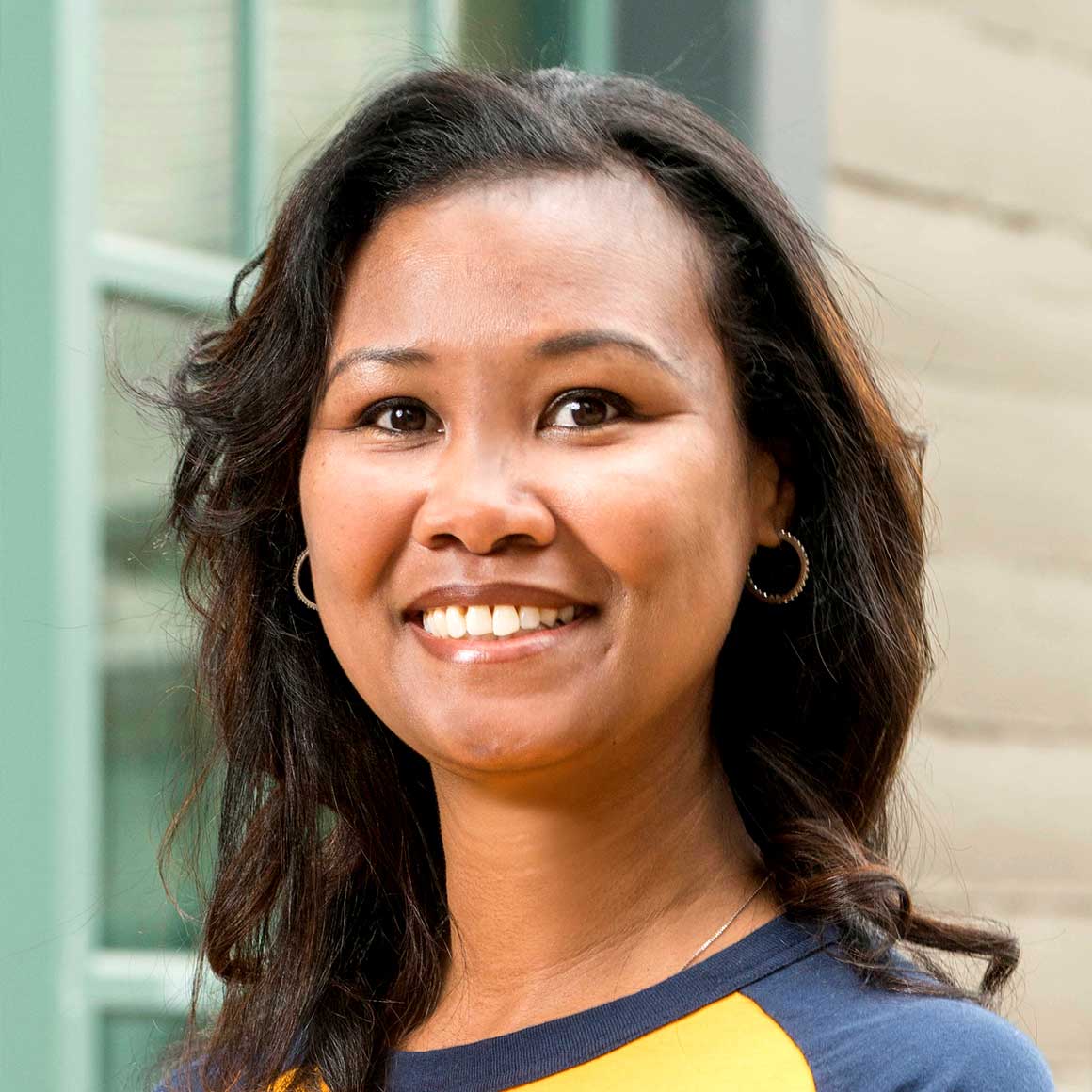
“I equated asking for help as a sign of weakness. I’ve learned that everyone asks for help in some form or another.”
Erika Walker
My backstory
I grew up as an army brat, changing schools every year until sophomore year. My parents divorced when I was a toddler, so my normal was going back and forth between them. Whether I was with my non-native English speaking mother or one of seven in a household with my remarried father, I grew up in low socioeconomic households. In high school, my mother moved from California back to the East Coast. I was tired of being the new girl in school, and asked to stay behind. I lived with my aunt in San Francisco and had a job to take care of personal expenses, until I graduated and went to Cal (B.S., American Studies, ’96).
What motivated me to go to college
When I was a little girl, I knew that education was my ticket out of the cycle of poverty. I still believe it’s a key factor as a vehicle toward social mobility.
What I would tell my freshman self
Cal can be overwhelming. Make the space smaller by finding communities of people who share your interests. Don’t be afraid to ask for help. No, seriously. People told me to go to office hours or see an advisor and I was extremely reluctant or didn’t go until it was too late. I equated asking for help as a sign of weakness or confirmation that I didn’t belong. Everyone asks for help in some form or another. Support is all around you at Cal. Talk to people. Expand your views. Take advantage of these learning opportunities because you’ve earned them!
How my background helped me
I experienced cultural and demographic diversity growing up in the military which expanded my worldview in ways that often differed from my peers. Also, as a biracial woman, my perspective was seen through multiple lenses. I believe these experiences allowed me to be more empathetic, able to facilitate difficult conversations, and ultimately led me toward this work in higher education.
The best thing about my college experience
Friendships. I can’t even describe how much fun I had. My closest friends and extended family are from those lifelong relationships that I developed in college. Navigating college and self-discovery during those formative years was a rite of passage for us. We established strong bonds and because of those key people, I can look back on my undergraduate experience with fondness and appreciation.

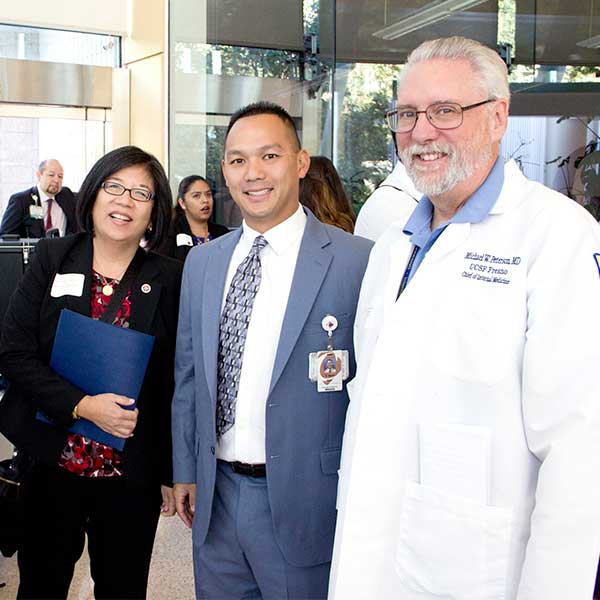
Michael W. Peterson, M.D.
My backstory
I grew up in North Dakota and western Nebraska, the oldest child of five. My maternal grandfather ran his own printing shop and my paternal grandfather was a store keeper and county sheriff for a period of time. My parents were products of the Depression and while both of them did attend some college, family commitments prevented them from finishing. Along with me, three of my siblings also went on to attain advanced or professional degrees.
What motivated me to go to college
There was never a time when I questioned that my goal was to go to college — and eventually medical school. My parents were supportive but couldn’t really assist me financially. They instilled in me the need to be as self-sufficient as I could be and plan for the future. They never questioned my goals and never doubted for one minute that I could accomplish my ultimate dream.
What I would tell my freshman self
Enjoy the learning for the pure pleasure of learning. It is too easy to get caught up in grade points, class ranks, etc., because of the competition. However, when you allow that to happen you miss the opportunity to fully appreciate the other rewards of expanding your experiences.
How my background helped me
I think two things were instrumental: first, my parents never doubted me and always supported my dream. Second, through their own hard work, they set an example. We certainly had everything that we needed growing up, but not to the degree I would see in some of my friends. My parents were always the ones to point out that hard work and personal discipline is what will get you to your goals.
The best thing about my college experience
There is no question that college allowed me to get to know a much more diverse group of people and to better understand issues in the world. It provided me the confidence that I could, in fact, succeed in life. It was a critically important experience in my development.
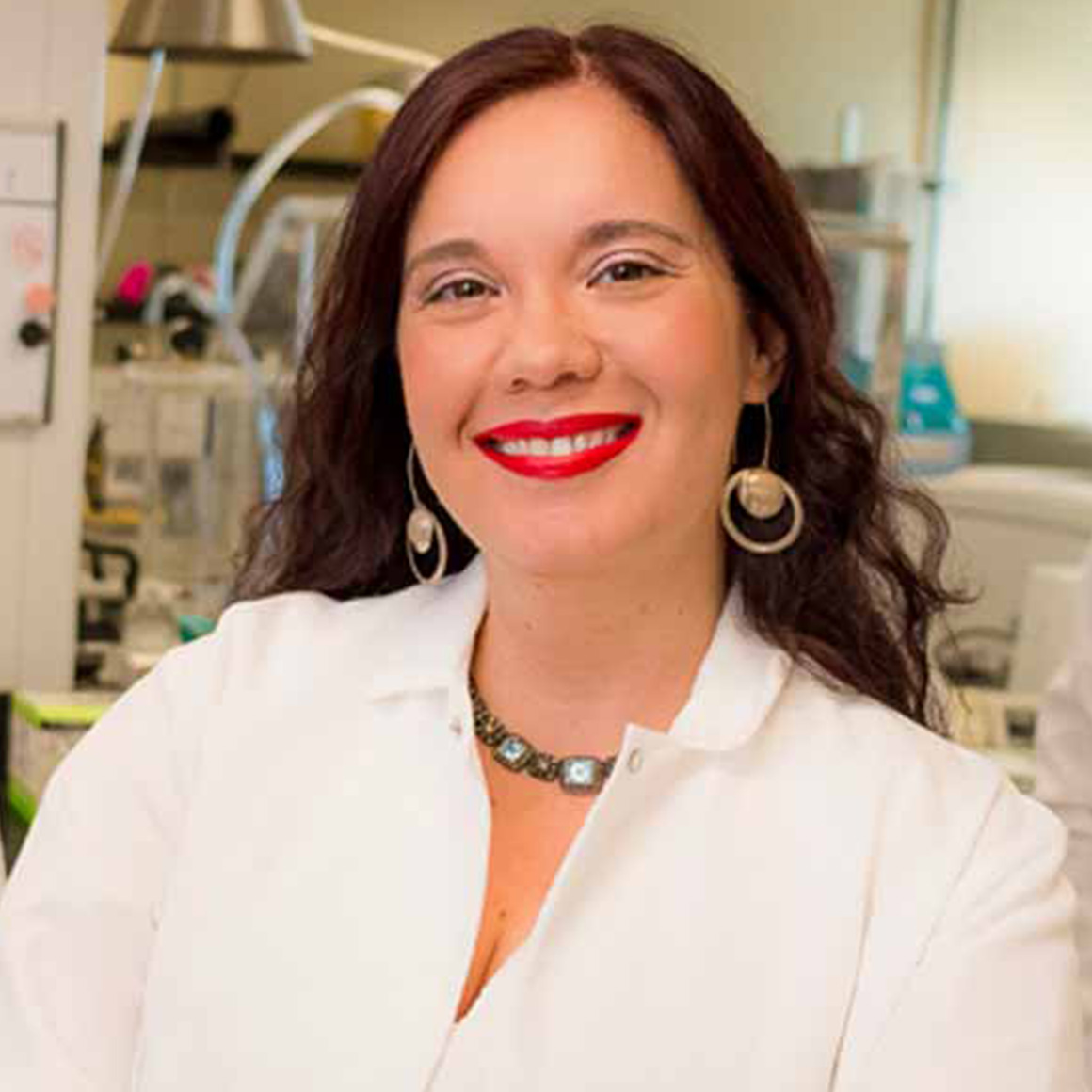
“I was part of a minority engineering program, where I found the most kindred spirits and the most positive community.”
Olivia Graeve
My backstory
I’m a fifth-generation Baja Californian. Like my parents, I was born and raised in Tijuana, right across the border from San Diego. What prompted me to consider UC San Diego is that it’s very close to the border.
What motivated me to go to college
I had very inspirational teachers who were very interested in my success and who kept steering me toward considering a college degree. I can think of one particular teacher in junior high school, my chemistry teacher, who was very inspirational. When I got to high school, my math, chemistry and physics teachers were also very influential. The case of having effective teaching at the junior high and high school levels — having teachers who care and are involved with their students and who provide that mentorship — I think is key for first-generation students, and it certainly was for me.
What I would tell my freshman self
Realize that there is light at the end of the tunnel. There is a four- or five-year experience coming at you that will be a positive experience. And at the end of the day, you are going to have a wonderful degree that will take you places in life.
How my background helped me
I’m the oldest of five children from a single mother. My father left when I was 6 years old. I had to more or less raise my baby brother, and I think that gave me a level of resilience that allowed me to come to a new environment like a University of California school. I was able to say, “Ok, I raised my brother, I can get through college.” Having a mom who had to work two jobs and all the support that she needed to make sure that we were ok. I think as the oldest I had to take on much of that responsibility. I didn’t realize it at the time, but that has really made me a person who can face any challenge and get through it.
The best thing about my college experience
The best thing about my college experience was the friends that I made. They are lifelong friends. My experience at UC San Diego was hugely positive. I was part of a minority engineering program and that is really where I found the most kindred spirits and the most positive community that I could have had.
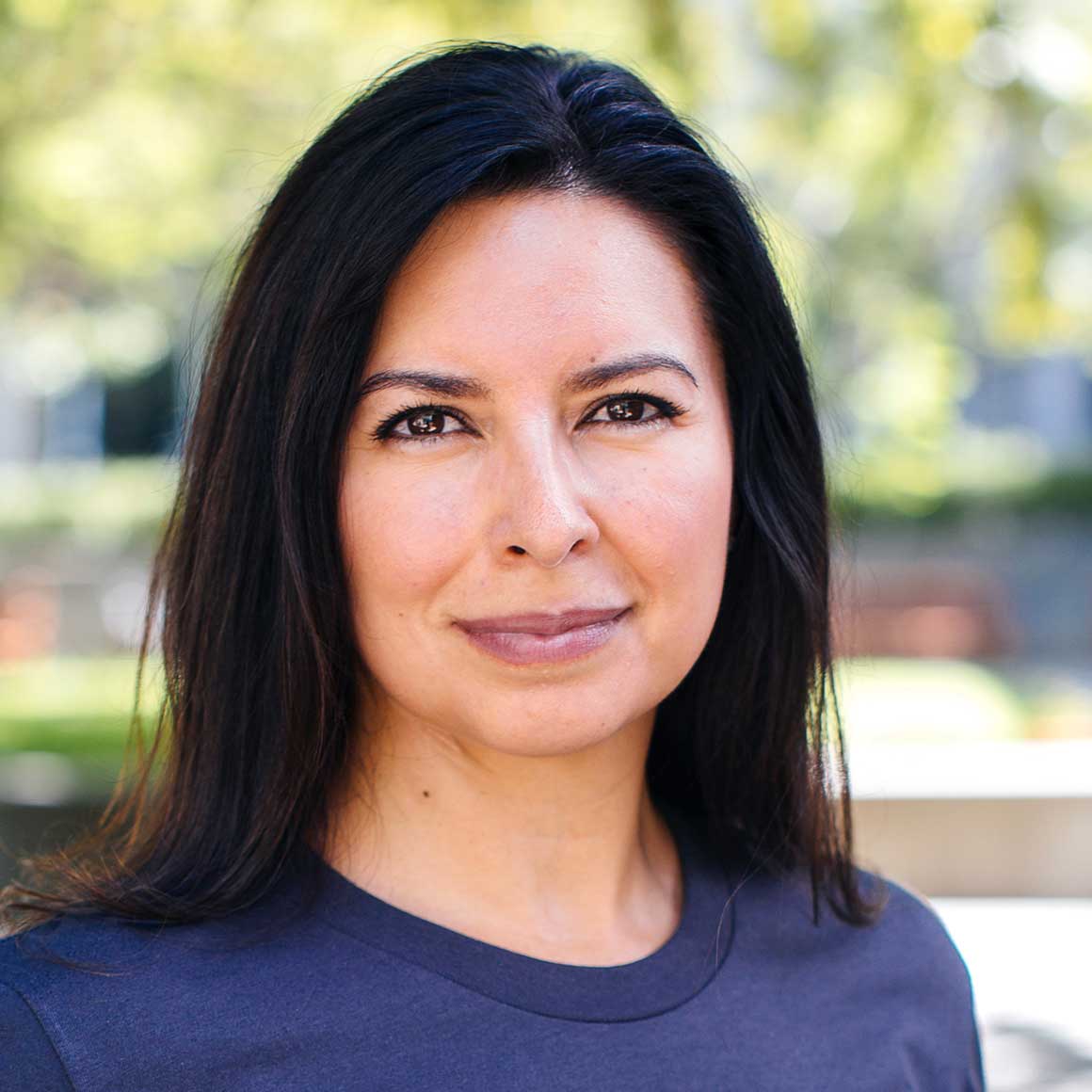
“Growing up, it was ingrained in me that education was the only way to move forward.”
Jeanette B. Ruiz
My backstory
I grew up in a small farming community near UC Davis. As the first-born of two immigrant farm workers from Mexico, navigating the K-12 school system was challenging, at best. There were a few teachers who were supportive but had it not been for the UOP program from UC Davis, I may not have made it to college (B.A., Rhetoric and Communication, UC Davis ’97; Ph.D., Communication, UC Davis ’15).
What motivated me to go to college
Both of my parents yearned for an education — they didn’t have the option as kids. They were forced to work at a young age to help support their families. However, I watched them both work full days in the fields and then come home to take night courses in English. Eventually, my father earned his GED and my mother completed her high school diploma. Growing up, it was ingrained in me that education was the only way to move forward. I wanted more for myself and I wanted my parents’ sacrifices to have been worth it.
What I would tell my freshman self
That it’s OK to not know and important to ask. That getting through requires just as much strategy as smarts. That it’s OK to make friends and have fun!
How my background helped me
I came in with a drive and determination that other students lacked. I also knew that it was up to me, no one owed me anything.
The best thing about my college experience
I wish I could tell you that I made a lot of friends and was a part of many organizations and clubs. Unfortunately, I was so focused on the end game that I really missed out on the journey. BUT college taught me that learning should be a life’s pursuit. More importantly, college opened the world to me. I had grown up in a bubble where you had to be the same to survive. College gave me the freedom to find and be myself.